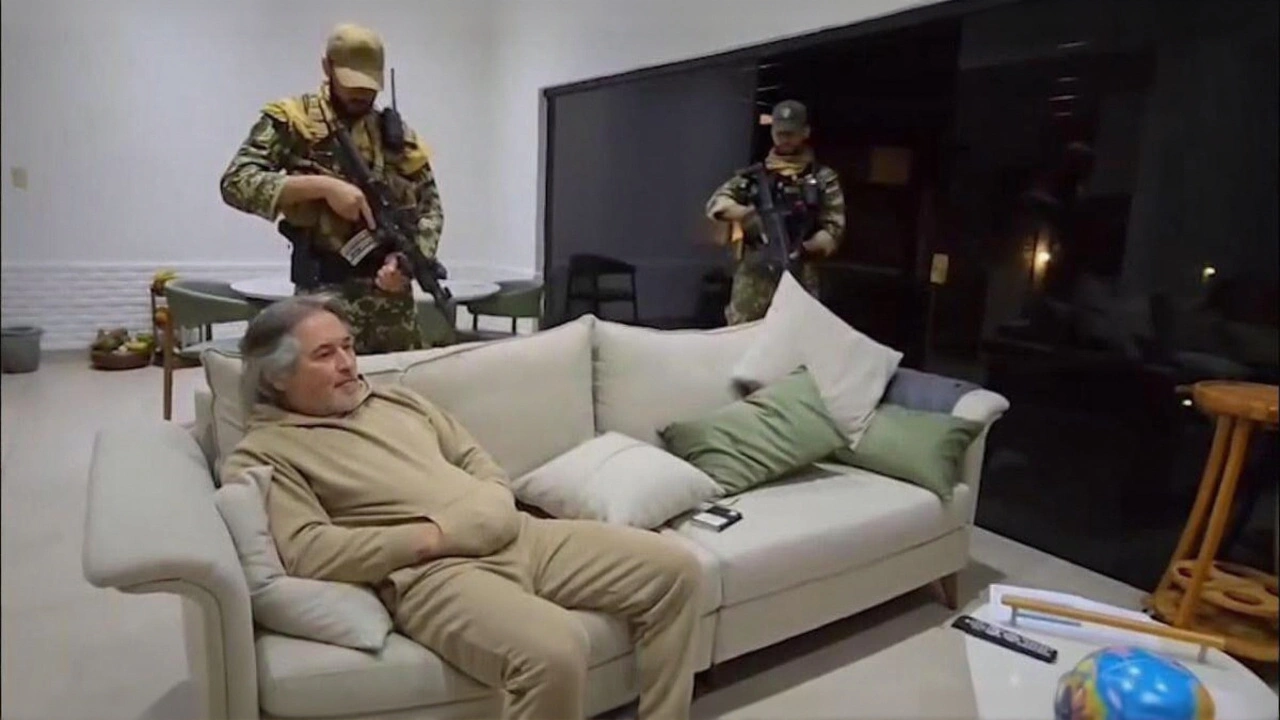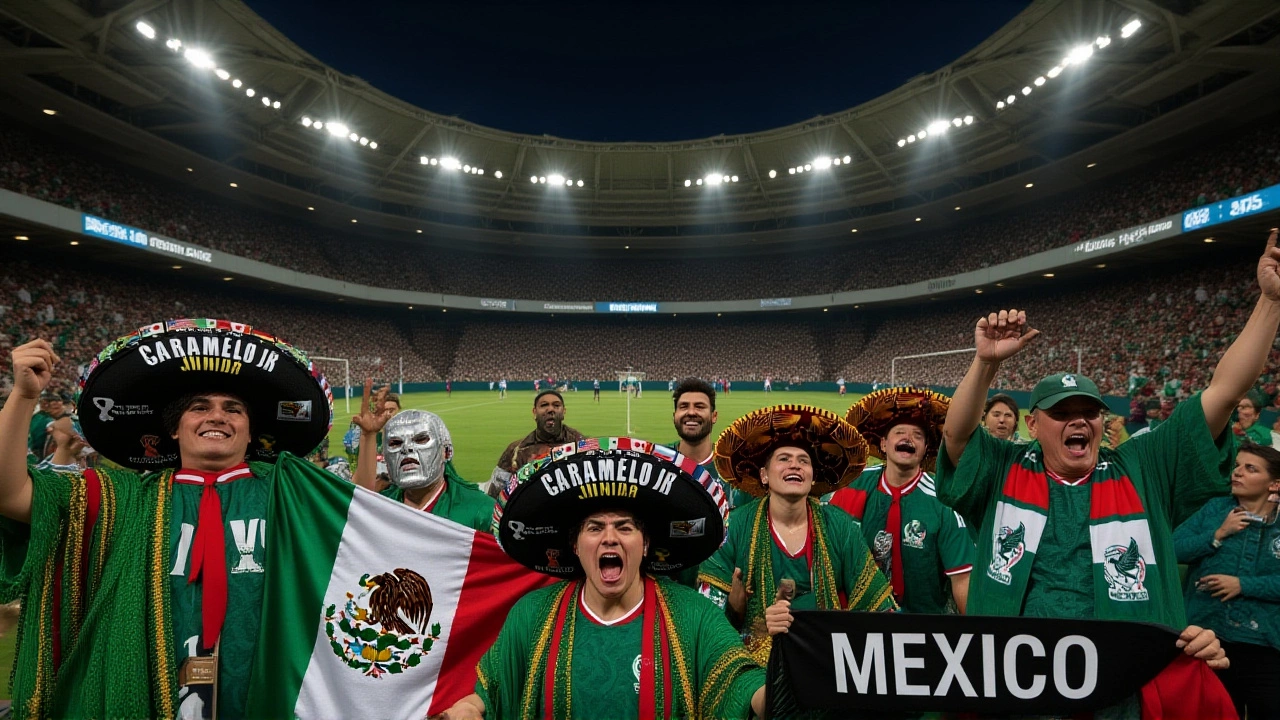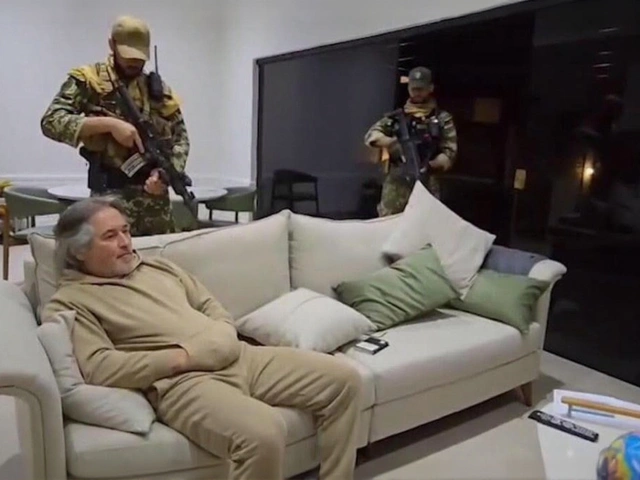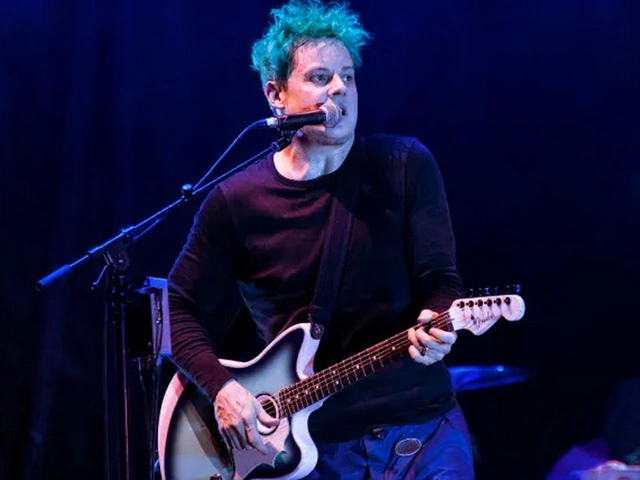
When Hernán Bermúdez Requena, the former security minister of Mexico’s Tabasco state, was dragged from a sofa in a luxury Asunción home on September 12, 2025, it wasn’t just another arrest—it was a crack in the wall between government and cartel power. The 72-year-old, known on the streets as El Abuelo and Comandante H, had spent years overseeing public safety in one of Mexico’s most vulnerable states while allegedly running La Barredora, a criminal network tied to the Jalisco New Generation Cartel (CJNG). His capture in Asunción, after a months-long international chase, has sent shockwaves through both Mexican politics and Latin American law enforcement circles.
From Security Chief to Suspected Kingpin
Bermúdez served as Tabasco’s top security official from 2018 to 2024 under governors Adán Augusto López Hernández and Carlos Manuel Merino Campos—both from the ruling Morena party. He was seen as a loyalist, a man entrusted with controlling crime in a region plagued by oil theft, extortion, and kidnappings. But behind closed doors, federal investigators say he was doing the opposite: using his position to shield La Barredora’s operations. The group, whose name translates to “The Sweeper,” specialized in express kidnappings—abducting victims for hours to drain bank accounts—and extorting small businesses under the guise of “protection.”
By late 2024, Mexican authorities had begun piecing together financial trails linking Bermúdez to shell companies in Cancún and Tuxtla Gutiérrez. A warrant was issued in February 2025. He vanished from Mérida, Yucatán, shortly after. What followed was a trail across continents: Panama, Spain, Brazil, and finally, Paraguay. His entry into Paraguay in March 2025 went unnoticed—until his nephew was arrested in July for running an illegal gambling ring. That arrest, authorities say, was the first real clue that the former minister was nearby.
The Raid That Caught Him
On September 12, 2025, at 8:00 PM local time, Paraguay’s National Antidrug Secretary (Sinad) stormed a two-story villa in Mariano Roque Alonso, a wealthy suburb of Asunción. Footage showed armored officers smashing through a reinforced door, shouting commands as Bermúdez was pinned to a couch. He offered no resistance. In the home, agents seized laptops, encrypted phones, cash in U.S. dollars and Paraguayan guaraní, and documents linking him to bank accounts in Brazil and Panama.
Paraguayan President Santiago Peña posted a video of the raid on X, calling it “a victory for the rule of law.” The Public Ministry of Paraguay confirmed the operation was conducted under an international cooperation protocol. “This wasn’t just about catching a fugitive,” said Secretary Jalil Rachid during a September 15 press conference. “It was about dismantling a plan to transplant Mexican organized crime into our soil.”

Why Paraguay? The Hidden Gateway
Paraguay has become a quiet hub for transnational crime networks in recent years. Its porous borders, weak financial oversight, and growing number of shell companies make it ideal for laundering money and relocating fugitives. Bermúdez’s wife had entered illegally in early 2025 but legally regularized her status on August 27—a move that likely helped him blend in. According to Rachid, Bermúdez had been in contact with local criminal elements and was attempting to establish a regional logistics network for CJNG operations.
“He wasn’t hiding,” Rachid added. “He was preparing.”
The Los Angeles Times reported that investigators found encrypted messages between Bermúdez and CJNG operatives in Jalisco, detailing plans to move cocaine through Paraguay’s eastern border region into Argentina and Brazil. His presence, officials believe, was meant to create a new corridor for drug trafficking that bypassed traditional routes through Guatemala and Honduras.
Extradition and Political Fallout
Bermúdez has agreed to extradition—but only under full legal process, not the expedited form Mexico requested. That means he’ll remain jailed in Paraguay for at least 60 to 90 days while paperwork is finalized. Mexican authorities say they have over 170 documented cases tied to his leadership of La Barredora, including five murders and 43 express kidnappings.
The political fallout is already rippling. Adán Augusto López Hernández, who served as Tabasco’s governor and later as Mexico’s Interior Secretary under Andrés Manuel López Obrador, is now under intense scrutiny. While no direct evidence links him to Bermúdez’s crimes, his close association with the former minister has raised uncomfortable questions about vetting procedures within Morena’s security apparatus. Critics point out that Bermúdez was appointed despite a prior investigation into financial irregularities during his tenure as a state police chief in the 2000s.

What This Means for Latin America
This arrest is more than a personal downfall—it’s a case study in how deeply organized crime has infiltrated state institutions. The fact that a sitting security minister could operate a criminal syndicate for years, using official resources and intelligence, shows how broken the system has become in parts of Mexico.
But there’s hope here, too. The cooperation between Mexican and Paraguayan agencies—fueled by financial forensics and Interpol alerts—demonstrates that cross-border intelligence sharing can work. It’s not perfect, but it’s working. And that’s something Latin American governments haven’t been able to say often enough.
As extradition hearings loom, Mexican prosecutors are preparing to charge Bermúdez with organized crime leadership, money laundering, and abuse of authority. If convicted, he could face over 40 years in prison. But the real question isn’t his sentence—it’s how many others like him are still in office.
Frequently Asked Questions
How did Paraguayan authorities find Hernán Bermúdez Requena after he fled Mexico?
Paraguayan investigators traced Bermúdez through suspicious financial transactions—large cash deposits and wire transfers linked to accounts opened under false names. The breakthrough came after his nephew was arrested in July 2025 for running an illegal gambling ring. That arrest triggered a financial audit that revealed connections to Bermúdez’s hidden assets in Paraguay, including property and bank accounts in Asunción.
What is La Barredora, and how is it connected to the Jalisco New Generation Cartel?
La Barredora, or “The Sweeper,” is a criminal group specializing in express kidnappings and extortion, primarily targeting small business owners and professionals in southern Mexico. While not a traditional cartel, it operates as a subcontractor for the Jalisco New Generation Cartel, handling local enforcement and money collection. Evidence shows CJNG provided weapons and intelligence to La Barredora, while Bermúdez used his government access to tip them off about police operations.
Why did Bermúdez choose Paraguay as his hiding place?
Paraguay offers weak financial oversight, a large Spanish-speaking population, and minimal extradition treaties with Mexico. It’s become a preferred transit point for fugitives from Central and South America. Bermúdez likely chose it because he could live in luxury under a low profile, and his wife’s legal residency in August 2025 gave him a veneer of legitimacy. Authorities believe he was planning to expand La Barredora’s operations into Paraguay’s eastern border region.
What are the chances Bermúdez will be extradited to Mexico?
Very high. Paraguay and Mexico have a bilateral extradition treaty signed in 2007, and Bermúdez has already consented to the process. The only delay is procedural—he’s rejecting the expedited form, which would have fast-tracked his transfer. Under standard procedures, extradition could take 60 to 90 days. Mexican prosecutors have submitted over 200 pages of evidence, including bank records, intercepted communications, and witness testimonies.
Could this arrest lead to more investigations into Mexico’s state security officials?
Absolutely. The case has already triggered internal reviews in Tabasco and at Mexico’s National Security Commission. Federal prosecutors are now examining the backgrounds of 12 former security chiefs from Morena-governed states between 2018 and 2024. If Bermúdez’s network extended beyond Tabasco—as evidence suggests—it could uncover a broader pattern of institutional corruption, not just isolated misconduct.
What impact does this have on Mexico’s fight against organized crime?
It’s a rare win. For years, Mexico’s anti-crime efforts have been undermined by insider threats. Arresting a former top security official who allegedly used his power to enable cartel operations sends a powerful message: no one is above the law, even if they wore a uniform. But it also exposes how deep the rot goes. This case isn’t just about one man—it’s about the systems that let him get away with it for so long.







Write a comment